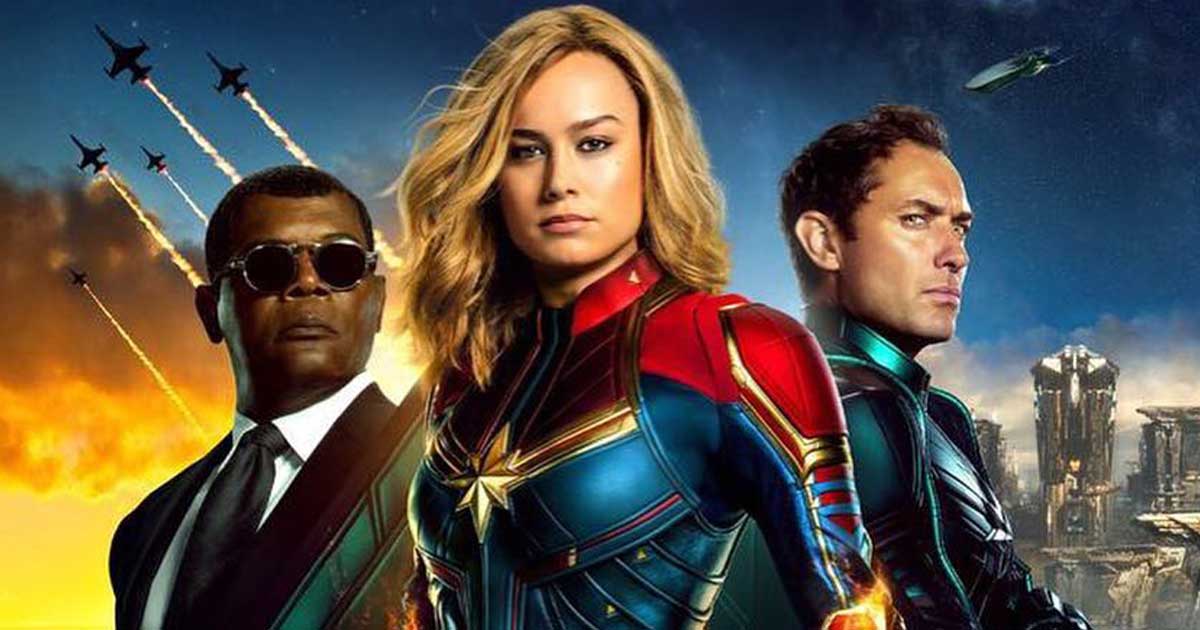
Remember when Captain Marvel faced a wave of criticism even before hitting the big screen? Yeah, that controversy was wild. Brie Larson’s take on the iconic superhero sparked a massive backlash, and the movie hadn’t even premiered yet. One early reviewer labeled it “a complete disaster,” while another ranted about “SJW nonsense,” using the now-infamous pejorative “social justice warrior.” But what stirred the pot? Let’s dive in.
Before the Release: The Build-Up of the Backlash
Over a month before its release, Captain Marvel was under fire from internet trolls. Brie Larson, who starred as the superhero made up headlines with her outspoken views on Hollywood’s diversity issues. She called for the movie to be “a big feminist movie” and pushed for more inclusive media coverage, vowing to seek out underrepresented journalists. Those statements? Troll fuel.
Trending
The Trolls and Rotten Tomatoes
As soon as Captain Marvel was announced, sites like Rotten Tomatoes were flooded with negative prerelease reviews. The “want to see” percentage on the site dropped dramatically, plummeting to just 27%. This wasn’t just a reaction to the film but more about Larson’s progressive stance. Much like social media giants Facebook and Twitter, Rotten Tomatoes had to take action. In response to the bombardment, they eliminated the option for prerelease audience reviews, hoping to curb the influence of bad actors. As the site said, they changed to “more accurately and authentically represent the voice of fans.”
A Deeper Divide: Gender and Representation
The growing movement in Hollywood to expand gender and racial representation only fueled the flames. With Larson’s vocal stance on diversity, some saw Captain Marvel as a battleground. It wasn’t just another superhero flick but a symbol of the changes happening in the industry. And for some, that was a step too far. Larson had criticized the dominance of white male film critics, even saying, “I do not need a 40-year-old white dude to tell me what didn’t work for him about A Wrinkle in Time.” This blunt attitude made Larson a target for trolls, who swarmed Rotten Tomatoes, IMDb, and YouTube.
A Win Despite the Hate
In the end, though, Captain Marvel soared. Rotten Tomatoes’ new policies helped, but the real victory came at the box office. The movie grossed an impressive $456 million globally during its opening weekend. Despite all the noise, Larson and her film emerged on top, proving that the trolls couldn’t sink the ship. Although the audience score initially hovered around 63%, it still marked a win for a film many tried to bring down.
Defenders Step In
Of course, with the detractors came the defenders. Some fans took to Rotten Tomatoes to praise the film and call out those attacking it. One fan wrote, “Imagine being so insecure, you cry about a movie with a girl as the hero.” Another added, “A large group of people are only down-voting this movie because they somehow feel threatened by it.” Even those who didn’t think Captain Marvel was Marvel’s best defended it as a fun and important film in the superhero canon.
What Came Next?
The Captain Marvel controversy was just one battle in Hollywood’s larger war of over-representation. Similar outcries surrounded films like Black Panther and Star Wars: The Last Jedi. But Brie Larson’s vocal stance and the eventual success of her movie pushed the conversation forward. Rotten Tomatoes revamped its critic policies, embracing a more inclusive approach, and many saw this as a direct result of the Captain Marvel backlash.
In hindsight, Captain Marvel didn’t just break box office records; it helped change the landscape of movie criticism and online reviews. Larson stood her ground, and Captain Marvel remains a symbol of the growing push for more inclusive, representative films.
For more such updates, check out Hollywood News.
Must Read: James Earl Jones Was Paid Only $7,500 For Original Star Wars Trilogy—Here’s The Story
Follow Us: Facebook | Instagram | Twitter | Youtube | Google News



 Follow Us
Follow Us











